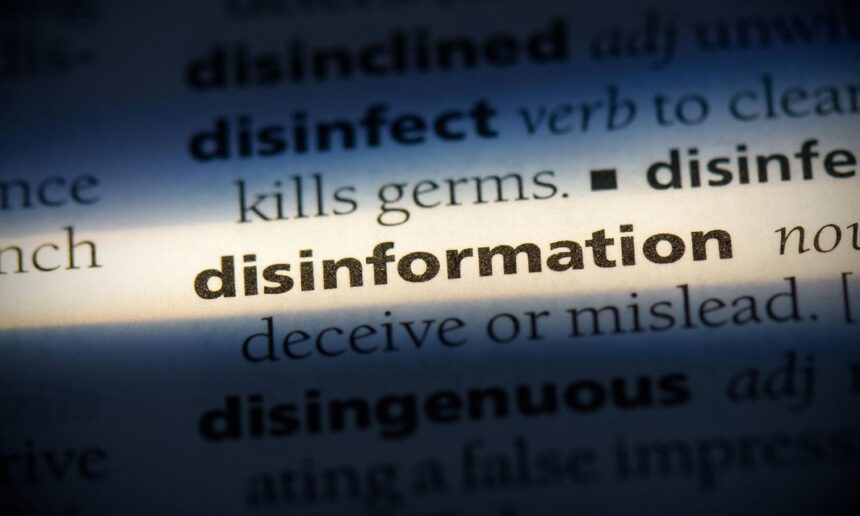The European Commission is preparing to unveil its latest initiative aimed at protecting both EU member states and candidate countries from foreign interference and political manipulation.
Called the “Democracy Shield”, the plan consists of a comprehensive set of measures that will be implemented over the coming years. According to an advanced draft seen by Radio Free Europe/Radio Liberty, Russia is identified as the main and direct threat—both to the European Union and to countries aspiring to join it.
The European Commission will present the official proposal on November 12.
“In addition to its brutal and aggressive war against Ukraine, Russia is also intensifying its hybrid attacks, conducting an influence battle against Europe. The tactics used penetrate deeply into the fabric of our societies, with potentially long-term consequences,” the draft states.
Kosovo, in alignment with EU policy, has already imposed sanctions on Russian state media such as RT and Sputnik.
“By spreading deceptive narratives—sometimes involving manipulation and falsification of historical facts—they aim to undermine trust in democratic systems,” the document warns.
While Russia is named as the primary actor, the 30-page draft does not mention any other country, though the EU has previously voiced concerns about China’s growing political influence across the continent.
The Age of Disinformation
Fighting disinformation and foreign interference remains a highly sensitive and divisive issue in Brussels and beyond.
The EU is still grappling with criticism from U.S. politicians, notably Senator JD Vance, who argued at the 2024 Munich Security Conference that Europe’s biggest threat came not from Russia or China—but from within, through censorship and suppression of dissenting opinions.
That criticism followed the Romanian Constitutional Court’s decision in December 2024 to annul the first round of the presidential elections just days before the runoff—after accusations of a Kremlin-backed online campaign in favor of nationalist candidate Calin Georgescu.
Amid such controversies, the European Commission is proceeding with caution. Many issues lie within national competence, and Brussels is wary of further straining ties with major tech companies—especially Google, Microsoft, and Meta—at a time of transatlantic uncertainty and growing fears of U.S. troop reductions in Europe.
Still, the document calls for greater cooperation with tech giants. Most—except Elon Musk’s X—are signatories to the EU Code of Practice on Disinformation, which requires them to submit regular reports to the Commission on how they counter false information.
AI and Disinformation
The draft also addresses Artificial Intelligence, urging platforms to do more to demonetize disinformation and detect or label AI-generated or manipulated content.
The “Democracy Shield” rests on three main pillars:
- Enhancing situational awareness;
- Supporting democratic institutions and a free press;
- Increasing civic engagement and public resilience.
A central proposal is the creation of a European Centre for Democratic Resilience, which would act as a hub to connect existing networks working on prevention, detection, analysis, and response to information threats.
This is not the EU’s first attempt—its 2019 Rapid Alert System failed to deliver results—but the new initiative will include EU institutions, member states, and even candidate countries like Moldova, Ukraine, and the Western Balkans.
The Commission emphasizes that the project will not function as a “Ministry of Truth.” Participation will be voluntary, and the center will operate in full respect of EU and national competences.
Election Monitoring and Media Freedom
The plan also includes:
- A digital identity portfolio for EU citizens and residents;
- A European fact-checking network and shared fact database;
- A voluntary network of influencers to raise awareness about EU rules and promote best practices.
Recalling Russia’s attempts to influence Moldova’s 2024 parliamentary elections, the draft calls for stronger EU election observation missions abroad, particularly in Armenia’s 2025 elections.
The European Digital Media Observatory will see its mandate expanded, receiving additional funding to study disinformation campaigns not only in the EU but also in neighboring regions.
Finally, the plan foresees financial support for independent journalism and free media in Europe’s neighborhood—including Belarus and Russia—though no concrete amounts are specified.
Most of the proposed programs are expected to be incorporated into the EU’s next seven-year budget (2028–2035), estimated at €2 trillion.







